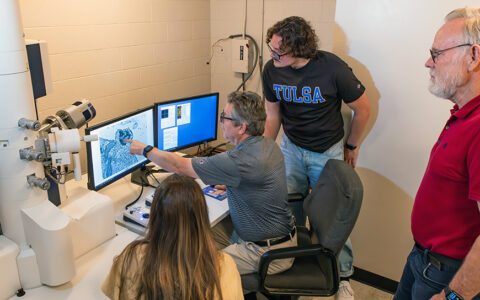Stand out. Belong.
Explore Degrees
Find your passion
Discover the world
When students travel the globe to connect with other cultures, expand their minds through classical studies, and discover solutions to complex challenges, they get a sense of their place in time. TU offers a multitude of experiences for students to cultivate their curiosity. From the Honors College and Tulsa Undergraduate Research Challenge to study abroad to community outreach, we help students realize their dreams.









